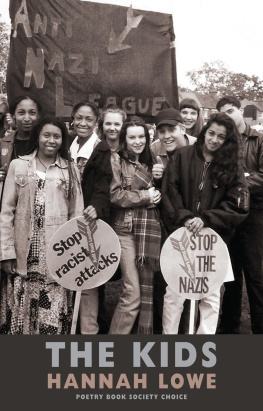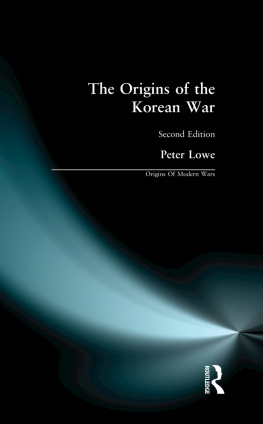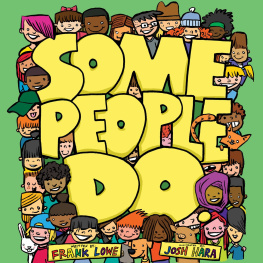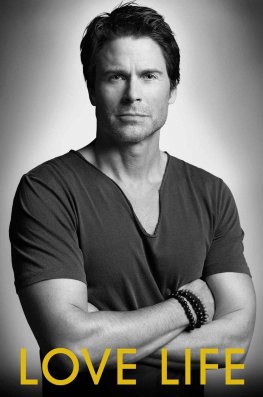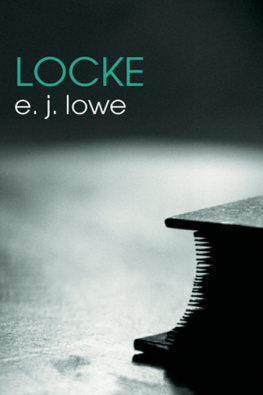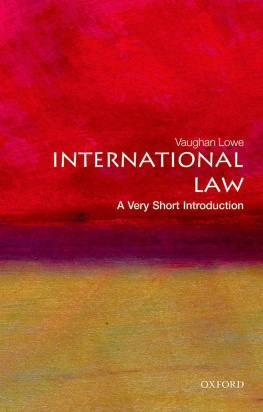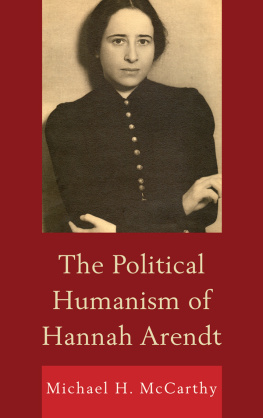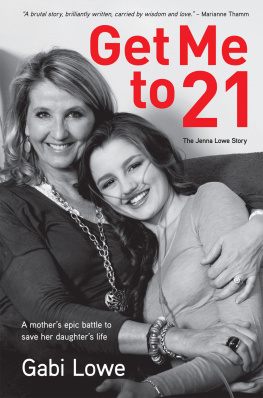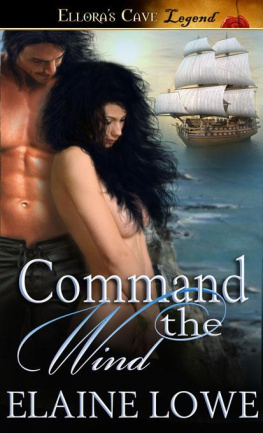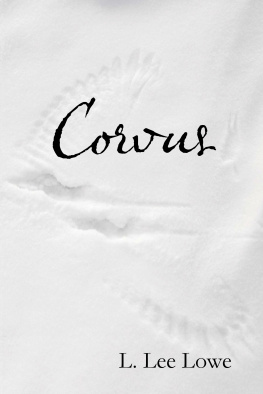Hannah Lowe - The Kids
Here you can read online Hannah Lowe - The Kids full text of the book (entire story) in english for free. Download pdf and epub, get meaning, cover and reviews about this ebook. year: 2021, publisher: Bloodaxe Books, genre: Detective and thriller. Description of the work, (preface) as well as reviews are available. Best literature library LitArk.com created for fans of good reading and offers a wide selection of genres:
Romance novel
Science fiction
Adventure
Detective
Science
History
Home and family
Prose
Art
Politics
Computer
Non-fiction
Religion
Business
Children
Humor
Choose a favorite category and find really read worthwhile books. Enjoy immersion in the world of imagination, feel the emotions of the characters or learn something new for yourself, make an fascinating discovery.
- Book:The Kids
- Author:
- Publisher:Bloodaxe Books
- Genre:
- Year:2021
- Rating:5 / 5
- Favourites:Add to favourites
- Your mark:
- 100
- 1
- 2
- 3
- 4
- 5
The Kids: summary, description and annotation
We offer to read an annotation, description, summary or preface (depends on what the author of the book "The Kids" wrote himself). If you haven't found the necessary information about the book — write in the comments, we will try to find it.
The Kids — read online for free the complete book (whole text) full work
Below is the text of the book, divided by pages. System saving the place of the last page read, allows you to conveniently read the book "The Kids" online for free, without having to search again every time where you left off. Put a bookmark, and you can go to the page where you finished reading at any time.
Font size:
Interval:
Bookmark:
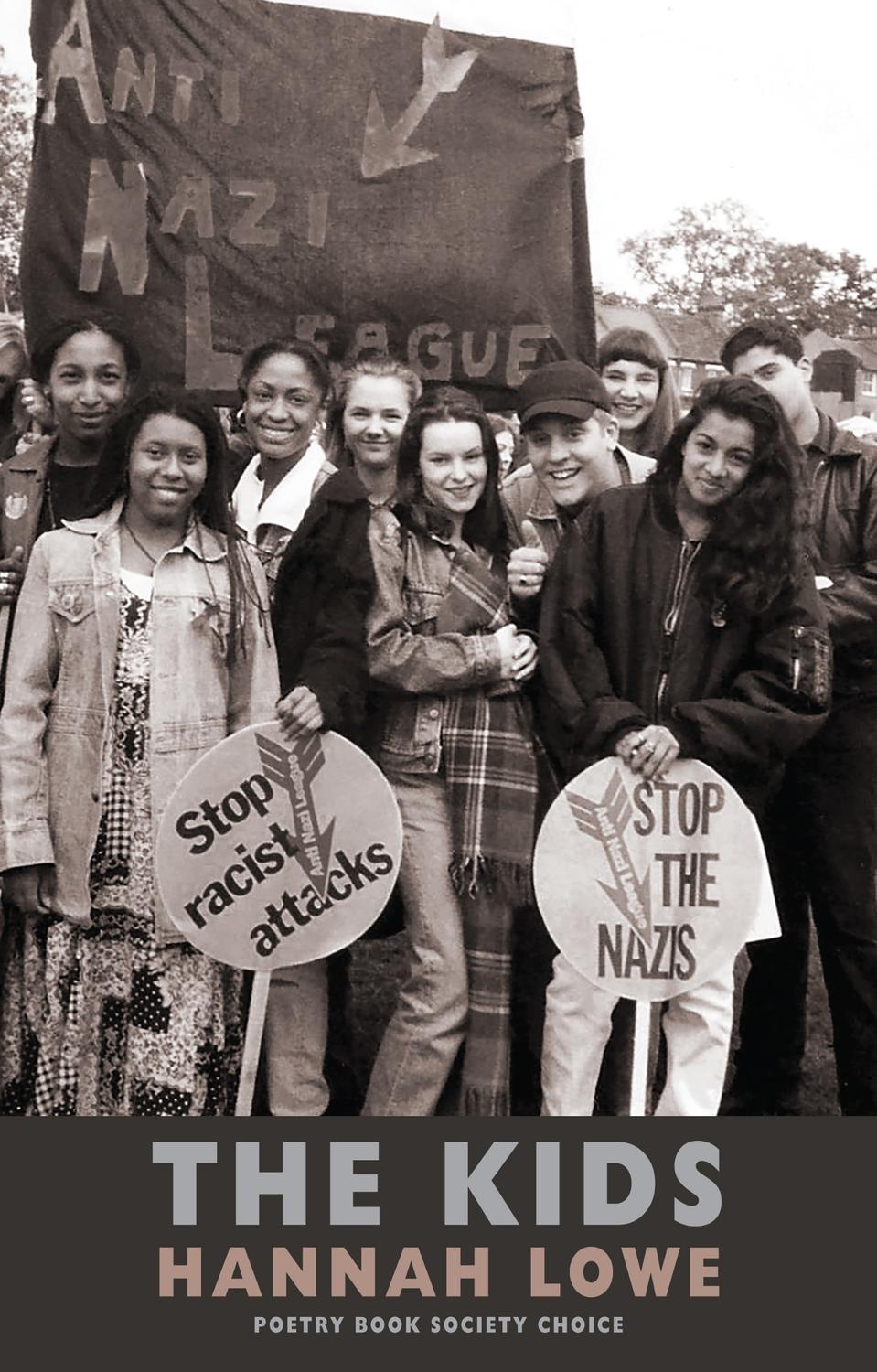
THE KIDS
These boisterous and musical poems explore and explode the universal experience of what it is to be taught, and to teach, ultimately reaching out and speaking to the child in all of us. The poems in the first section of the book draw on Hannah Lowes experiences as a teacher in the 2000s, but the scenarios are largely fictitious, as are the names of the students. The poems in The Kids fizz and chat with all the vitality and longing of the classes they conjure. Funny, moving, sometimes painful and always questioning, they capture teachers and their students learning life from each other in profound and unexpected ways. A joy to read. Liz Berry These sequences of stories are a refreshing update to The Prime of Miss Jean Brodie and To Sir with Love. Each of Lowes sonnets is a blackboard chalked with the tales of earnest teachers, of cheeky and lovable students, of being mentored to become a poet and of motherhood and learning to instruct again.
Lowe makes the sonnet exciting for our age through its urgent, its compassionate, its wonderfully humorous address of the personal and the social. Daljit Nagra Cover photograph by Eve R Light shows students from Barking College at the Anti-Nazi League Carnival Against the Nazis, 28 May 1994, Brockwell Park, London. Image edited by Vicky Morris.
And we cannot go to sleep WILLIAM BLAKE, Nurses Song
Upstairs, I typed and filed memos for Shell, BP, shareholder handbooks. But every time I saw that dog trotting with blood in its beard, its eyes gone cloudy blue, the same thought tap tap tapped my head, a spoon against a hard-boiled egg. All afternoon at the photocopier typing, filing, typing. He was dead, he was dead. Now what should I do?
I took my seat, and called the register Deniz, Tyrone, Alicia, Chantelle
Even the clock-face is pained and yes, Im sure now, ticking slower. If gloom has a sound, its the voice of Leroy reading Frankenstein aloud. And if we break to talk, I know my questions are feeble sparks that wont ignite my students barely beating hearts. There is no volta here, no turn, just more of the same: the cloud sinking ever lower, the air damper, yet more rain. And the task is unchanging, like spending years chasing a monster you yourself created. Leroy asks if he can stop reading.
I say, for now, he can.
His bear-like body rattled as he puffed. He loved his son so much, the love fell out of him
Font size:
Interval:
Bookmark:
Similar books «The Kids»
Look at similar books to The Kids. We have selected literature similar in name and meaning in the hope of providing readers with more options to find new, interesting, not yet read works.
Discussion, reviews of the book The Kids and just readers' own opinions. Leave your comments, write what you think about the work, its meaning or the main characters. Specify what exactly you liked and what you didn't like, and why you think so.

